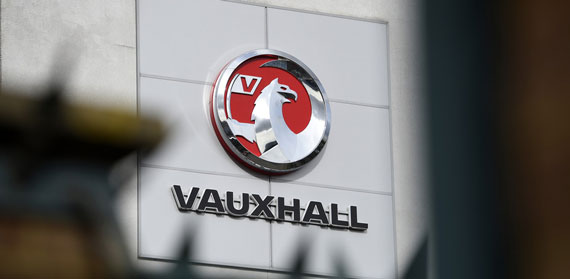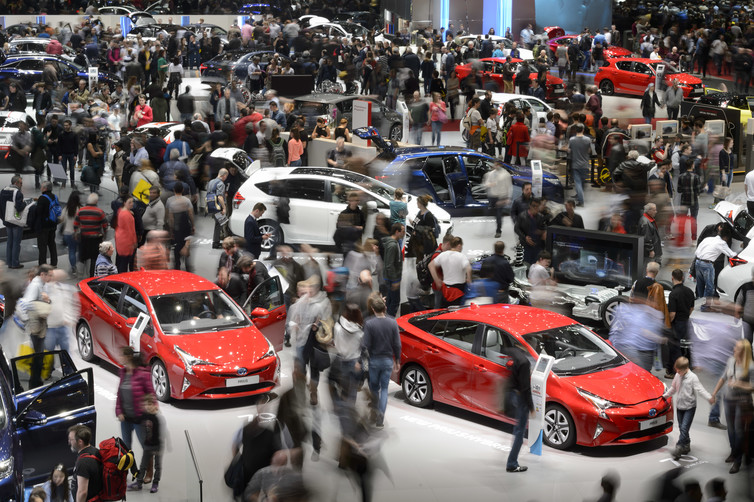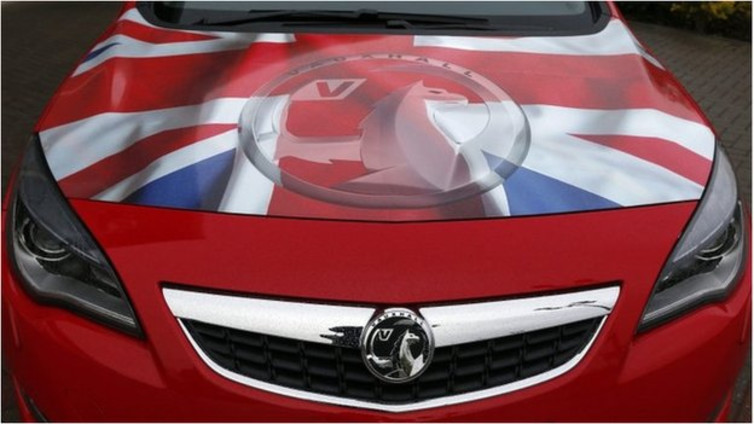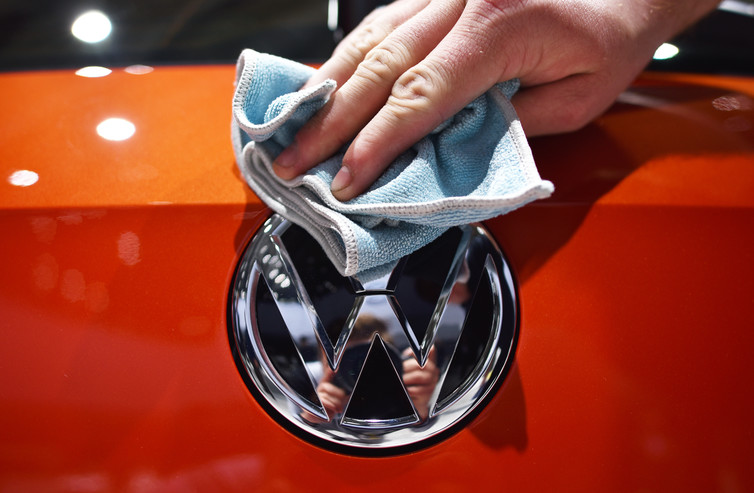Under threat? A tough call for PSA. EPA/FACUNDO ARRIZABALAGA
Guest post by Andrew Noakes
Pity the car maker trying to get coverage this week for a shiny new model or revised range at the Geneva International Motor Show. The biggest topic of conversation there will not be anyone’s latest offering. Instead it will be the news that French group PSA – the maker of the Peugeot and Citroen brands – has agreed to take over General Motors’ Opel/Vauxhall group and its European finance operations for a combined €2.2 billion.
It is a deal that will fundamentally redraw the car-making map of Europe – again. You see, this isn’t the first time PSA has bought the loss-making European arm of a US auto maker, and if this acquisition plays out in the same way as the last one it could be grave news for plants in the UK.
In Coventry, in the West Midlands, locals still bitterly remember PSA’s closure of its Ryton assembly plant in 2006 despite the effort put in by management and workforce to improve productivity and cut costs.
Crowds at last year’s Geneva motor show. EPA/MARTIAL TREZZINI
Job cuts
Ryton was one of the last remnants of the Rootes Group, a British car making giant in the middle of the 20th century which was absorbed by the US Chrysler company in 1964. For a while, the new arrangement worked well. But as Chrysler struggled to compete with Ford and General Motors in the 1970s US market, it starved its European arm of R&D cash.
Chrysler Europe’s myriad brands were rationalised and replaced by the Chrysler nameplate. Ultimately, the parent company divested itself of the European group for a nominal US$1 in 1978. The buyer was PSA Peugeot Citroën.
PSA rebadged European Chrysler cars under the Talbot brand, but did little to invest in new product. Instead it sold its Whitley engineering centre to Jaguar in 1986, and phased out Talbot models in favour of Peugeots. Ryton soldiered on until 2004 when PSA decided to build its 207 supermini elsewhere. Ryton closed, with a loss of 2,300 jobs. Some of those workers, and their families and friends, refuse to buy Peugeot cars to this day.
The closure of Ryton casts a long shadow over the new announcement. PSA will be looking to cut costs across its newly-expanded group and the two Vauxhall assembly plants in the UK, at Ellesmere Port on Merseyside and at Luton in Bedfordshire, will be under a renewed threat.
Playing for pride? There is a marketing risk in closures. Duncan Hull/Flickr, CC BY
Top-sellers
Then as now, UK plants are at risk not because they suffer from poor quality or high costs. Instead the problem is that the UK’s more flexible labour laws make it easier and cheaper to close a plant here than in France (where PSA’s biggest plants are located) or Germany (where most Opel production is based).
PSA may now find itself in the invidious position of being forced to close an efficient plant in the UK because the costs of closure – political, social and financial – are higher elsewhere.
But PSA cannot afford to ignore the UK completely. Britain is still the second biggest new car market in the EU, and Vauxhall is the second biggest brand in the UK. Its Corsa and Astra models were both top-ten best sellers in the UK car market in 2016, and Vauxhall sold more than 250,000 cars for a 9.3% share of the market. By comparison PSA’s three brands sold just 161,000 cars between them in the UK last year.
And all may not be lost for the Opel/Vauxhall UK assembly plants in the UK. PSA aims to grow and challenge Volkswagen as the largest car maker in Europe and join the battle with Toyota to be the largest in the world. To do that it will ultimately require greater capacity.
Ready for a fight? VW looks vulnerable to a challenge. EPA/OLE SPATA
Going in on a gamble
PSA boss Carlos Tavares may be banking on the long-awaited recovery of the European car market. While the UK market is enjoying its best sales figures for years, Europe is yet to recover fully from the collapse in sales which accompanied the financial crisis in 2007. Tavares could be gambling that PSA will need to increase production as the European market recovers, which would dovetail with the extra capacity delivered by the Opel/Vauxhall acquisition.
Tavares will also see the UK plants as a hedge for PSA’s bets against the uncertainties of Brexit. Currency fluctuations and different trade tariffs between the eurozone and post-Brexit Britain could make a production facility outside the EU an advantage for PSA – if the UK plants can boost their proportion of local content from the current 25% or so. The recent news of a £10m investment by the Liberty House automotive group in a new automotive centre of excellence in the Midlands will give those plans a boost by encouraging growth in the UK supply chain.
Meanwhile, the disposal of Opel/Vauxhall may solve one immediate problem for GM but it also generates a series of new ones. For example, the D2XX platform that underpins Opel/Vauxhall’s Astra and other models is also the basis for US market models like the Buick Envision and Chevrolet Cruze, plus the Chinese market Buick Verano.
When the time comes to engineer replacements for those cars GM will no longer be able to use its European volume to spread the costs. Disposing of its European problem child could well make its US products more expensive. Ironically the solution to that might be for GM to do a platform-sharing deal – with PSA.







Comments are disabled